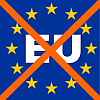Latest News for: universal remote
Edit
What I Discovered About Organic Technology Will Change Your Life Forever
Exopolitics 04 Nov 2024
Edit
'Smart eyes' help protect 'intl airport for birds'
China Daily 04 Nov 2024
Collaboration with universities and research institutions has allowed the center to maintain an advanced think tank. Through remote sensing, big data, and the Internet of Things, the center has set up ...
Edit
 Aiken Standard
04 Nov 2024
Aiken Standard
04 Nov 2024
MUSC Greenway is a park, an oasis and a gathering place in the Medical District
Not far from her lecture hall, first-year medical student Kendall Parsons can wander into greenery and shade in the midst of the Medical University of South Carolina campus and relax. "I feel like I'm a little bit more remote," she said.
Edit
‘We have no choice’: Gazan workers find a lifeline in freelancing amid war
The Observer 03 Nov 2024
Ahmad had been working with freelancers since at least 2020 when he opened his first co-working space, which offered mentorship and training for remote workers in partnership with international universities and organizations.
Edit
Scientists detect traces of an ancient Mayan city in southern Mexico using laser-sensor technology
Journal Gazette 03 Nov 2024
Edit
 Cleveland Jewish News
01 Nov 2024
Cleveland Jewish News
01 Nov 2024
CWRU Siegal Lifelong Learning’s ‘Women in Gold’ Nov. 6
E. Randol Schoenberg, an attorney, Jewish genealogist and documentarian will present “Women in Gold” from 7 to 8 p.m. Nov. 6 as part of the Case Western Reserve University Siegal Lifelong Learning program. This remote lecture is free and open ... .
Edit
United Way plans online auction
Lima Ohio 31 Oct 2024
Kansas City Chiefs tickets, a NexiGo outdoor projector, an inflatable 16-inch movie screen, a nostalgia popcorn cart with kettle, Ohio State University ...
Edit
What remote work can do for global development
The Manila Times 30 Oct 2024
Modern information technology has the potential to enable large-scale remote work anywhere on the planet and also to help countries gradually create entire technology sectors and ecosystems.
Edit
Best JBL wired earphones: Top 6 affordable, high bass and noise-cancelling choices
Hindustan Times 30 Oct 2024
20-20kHz3.5mm gold plated connectorOne-button universal remote with microphoneDriver size ... 20-20kHz3.5mm gold plated jackOne-button universal remote with microphoneDriver size.
Edit
Enrollment inches upward in Universities of Wisconsin system
Madison 29 Oct 2024
(AP) — Overall enrollment in the Universities of Wisconsin system's four-year schools ticked upward this fall compared with last year, data released Tuesday shows ... Enrollment at UW-Madison, the system's flagship university, increased nearly 3%.
Edit
PhD student finds lost city in Mexico jungle by accident
Yahoo Daily News 29 Oct 2024
“I was on something like page 16 of Google search and found a laser survey done by a Mexican organisation for environmental monitoring,” explains Luke Auld-Thomas, a PhD student at Tulane university in the US.
Edit
Feather-inspired wing flaps may prevent planes from stalling
Popular Science 29 Oct 2024
Researchers at Princeton University recently upgraded a small remote-controlled model airplane to include rows of flaps that mimic covert feathers—the feather groupings on birds that passively adjust ...
Edit
Solar power to the people: how the sun is bringing light – and TV – to Amazon villages
The Observer 29 Oct 2024
“In remote regions, the choice of solar energy has a universal consensus,” says Vinícius Oliveira, project leader at the Institute for Energy and the Environment (Iema), a nonprofit organisation promoting public policies on energy and transport.
Edit
World Insights: Chances of peace still remote for Gaza despite ongoing ceasefire talks
Xinhua 29 Oct 2024
Israel has decided to push for a definitive military solution," Luciano Zaccara, an associate professor at the Gulf Studies Center at Qatar University, said on X, expressing his doubts about a breakthrough in the talks.
- 1
- 2
- Next page »